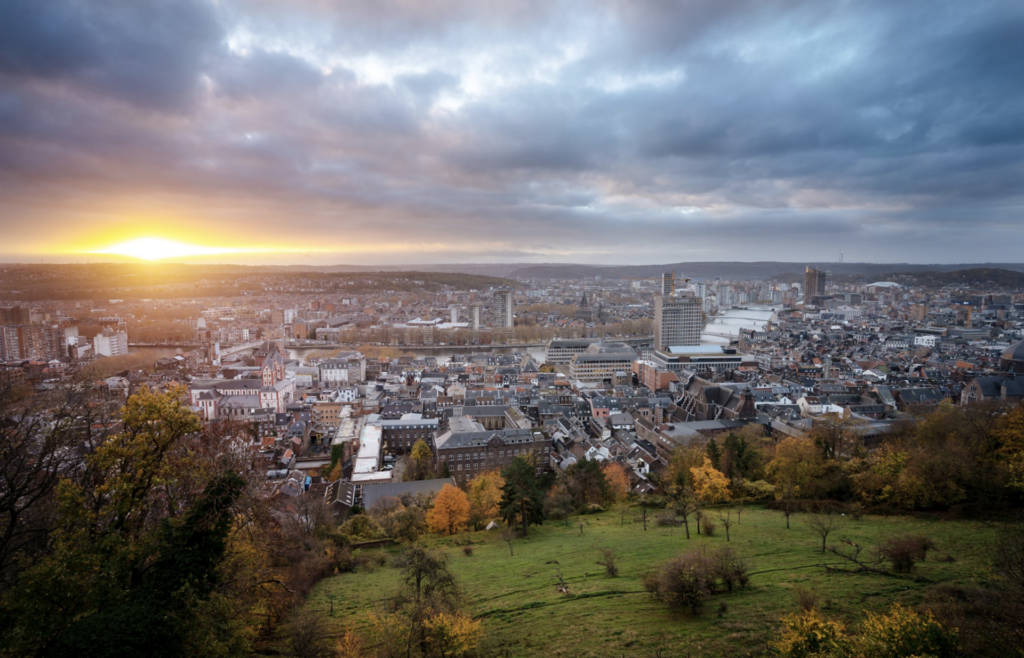The city of Liège in Wallonia has in recent years become an unlikely breeding ground for environmentally conscious businesses who operate within the circular economy.
A number of local businesses who unique selling point is circular economy, including Ecopoon, Bring Back and the Curtius brewery, have enjoyed success.
Ecopoon founders Maxime Vanderheyden and Cyril Ernst, two graduates from HEC Liège, set themselves a target in 2017 to create a range of edible cutlery.
Origin story
The idea for Ecopoon came after they both attended a music festival during which a large amount of disposable cutlery was used. Teaming up with the Foundation for Future Generations, their small company is now offering three types of edible cutlery: a natural taste spoon, a rosemary aperitif spoon and a speculoos coffee stirrer.
These pieces of cutlery are mainly composed of flour, which Maxime and Cyril buy at the Val-Dieu mill in Aubel. The mill chosen by the two friends is located less than fifteen kilometres from their warehouse and practices regenerative agriculture. This ancient and rarely used practice consists of growing wheat with the greatest respect for the environment, without machinery and without products.
Related News
- French start-up finds new use for waste yeast from brewing
- Flanders gives €18.4 million to circular projects to transform supply chains
- King Philippe visits circular production centre in Anderlecht
Beyond their desire to work as much as possible with local partners, Ecopoon's creators are also thinking about how they can reuse certain waste as raw material for their products.
In collaboration with the Brussels Beer Project, they are now recovering spent grains – waste that is obtained after brewing beer – in order to use it as an alternative to flour in some of their products. "Using spent grains allows us to use less wheat flour and therefore to have an ecological footprint that is better overall," Maxime Vanderheyden told RTBF.
However, Maxime and Cyril are not the only ones to recover spent grains from brewing in order to make new products. Not far away, the brewery of the Abbey of Val-Dieu collects the grains of its own beer to make aperitif biscuits. Available in three tastes, these crackers are both nutritious and sustainable, being made from the waste produced by the brewery.
Other success stories
Closer to the centre of Liège, the Curtius brewery, which is largely supplied with local products, is also trying to get its waste back into the circular economy. The founders of the brewery collaborated with the young entrepreneur Corentin Hubin, who recovered the spent grains produced by the brewery in order to transform it into furniture and insulating panels.
Another entrepreneur in the region, Laurent Halmes, recently launched his company Bring Back, the first Belgian washing centre for reusable food packaging. Here, glass packaging (mainly returnable beer bottles that customers would normally drop off in a store) is washed before being reused. Washing bottles actually produces five times less CO2 than recycling them. The Liège-based company is looking to collaborate with an ever-increasing number of players in order to drastically reduce the pollution generated by the recycling of glass bottles.
The common point between these different actors is that they continually seek to question themselves in order to improve their waste management again and again. They hope that this ecological awareness will gradually expand to other companies in order to build, together, a greener future.

